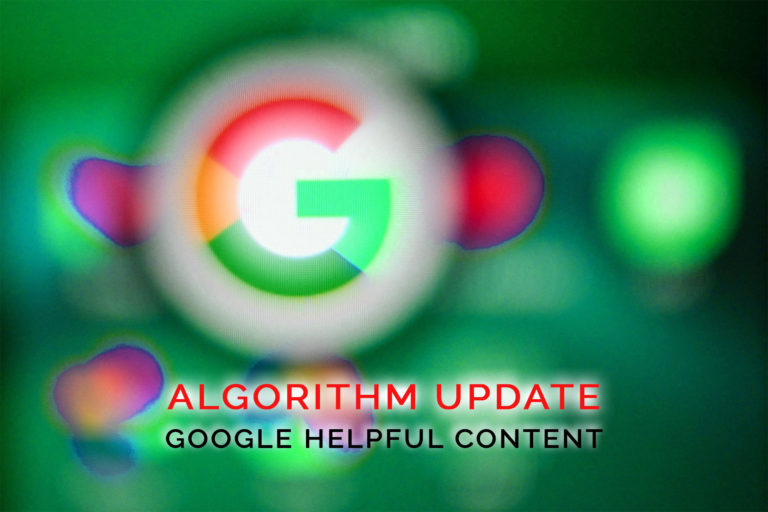Post Published on April 30, 2015
Last Updated on by Sharat Nair
Algorithm Changes Explained: What You Need to Know
An algorithm update refers to the adjustments made in how search engines, such as Google, rank and present web content in their search results.
These updates are introduced to enhance user experience by delivering more precise, pertinent, and valuable search results.
Comprehending the concept of algorithm updates is crucial for website owners, marketers, and content creators, as it substantially impacts online presence and website traffic patterns.
Before we start describing the difference between Google Panda and Google Penguin, it’s crucial to remember that Google’s algorithm undergoes at least 600 modifications annually. These adjustments can range from minor tweaks to significant overhauls.
Updates like Penguin, Panda, Google Hummingbird, and Local are integral components of these changes, enhancing the search engine results page (SERP) to display more relevant, accurate, and measurable outcomes.
What is Google Panda?
Google Panda, launched on February 23, 2011, was designed to prevent poor-quality content from appearing in search engine results pages (SERPs).
It identifies and eliminates spam or outdated and irrelevant content from the SERPs.
On July 17, 2015, Google introduced Panda 4.2, which aimed to more accurately target low-quality content.
In practical terms, it particularly targets pages with thin content and those featuring promotional elements like games and lyrics.
In May 2014, eBay experienced a significant impact from a Panda update, with three-quarters of its first-page rankings disappearing.
Many attributed this to Panda’s strict approach. While Google recognized eBay as a powerful website and a top online domain,

eBay’s users had created a vast amount of low-value content that was deemed useless by most of Google’s users. This ultimately led to the substantial drop in rankings.
The Panda update, also known as Farmer, has significantly impacted numerous content farms, which are essentially websites that collect or sometimes plagiarize information from various sources.
These sites aim to create a vast index of pages to rank well for a wide array of keywords.
This is a key reason why Google encourages the creation of original content for effective search engine optimization. It’s important to understand that Panda continues to evolve and improve its ability to identify and eliminate unoriginal and copied content.
Consequently, websites that have not taken appropriate measures to generate high-quality, fresh content are likely to face negative impact.
There are a few factors that are commonly acknowledged as essential aspects to consider concerning Panda:
1. Thin Content
Thin content refers to webpages with minimal or no value to users, such as:
- Pages with little or no original content
- Automatically generated or scraped content
- Pages with excessive advertising and little useful information
To improve your website’s rankings and user experience, create helpful, reliable, and people-first content that is comprehensive, engaging, and authentic.
2. Duplicate Content
Duplicate content occurs when similar or identical content appears on multiple pages within or across websites. This can lead to confusion and negatively impact search rankings. To avoid duplicate content:
- Use canonical tags to indicate preferred versions of pages.
- Consolidate similar content into a single, high-quality page.
- Implement 301 redirects to guide users and search engines to the correct pages.
3. Low-quality Content
Low-quality content is characterized by poorly written or superficial information, keyword stuffing, or other manipulative tactics. To create high-quality content:
- Focus on providing valuable, user-centric, and informative content.
- Use relevant keywords naturally within titles, headings, alt text, and link text.
- Ensure content is factual, detailed, and credible.
How to Recover from a Panda Hit?
If a Panda update hurts your website, concentrate on raising the calibre of your content.
Get rid of any flimsy or repetitive content and try to offer insightful, unique information that appeals to your target market.
Google’s Panda update targets websites with thin, duplicate, or low-quality content. To recover from a Panda hit:
- Identify and remove or improve thin content.
- Eliminate duplicate content using canonical tags or 301 redirects.
- Enhance the overall quality and value of your website content.
Google Panda Updates History
- Panda 1.0: February 24, 2011
- Panda 2.0: April 11, 2011
- Panda 2.1: May 10, 2011
- Panda 2.2: June 16, 2011
- Panda 2.3: July 23, 2011
- Panda 2.4: August 12, 2011
- Panda 2.5: September 28, 2011
- Panda 3.1: November 18, 2011
- Panda 3.2: January 18, 2012
- Panda 3.3: February 27, 2012
- Panda 3.4: March 23, 2012
- Panda 3.5: April 19, 2012
- Panda 3.6: April 27, 2012
- Panda 3.7: June 8, 2012
- Panda 3.8: June 25, 2012
- Panda 3.9: July 24, 2012
- Panda 3.9.1: August 20, 2012
- Panda 3.9.2: September 18, 2012
- Panda #20: September 27, 2012
- Panda #21: November 5, 2012
- Panda #22: November 21, 2012
- Panda #23: December 21, 2012
- Panda #24: January 22, 2013
- Panda #25: March 14, 2013
To survive successfully through Panda’s updates, it’s essential to revamp the website by eliminating low-quality, useless pages. Additionally, assess and refine over-optimized pages, enhance brand awareness, and increase social media engagement through new campaigns. Furthermore, separating the webpages affected by the update from those unaffected can be beneficial.
Contact us for expert guidance on recovering from a Panda hit.

What is Google Penguin?
Google Penguin mainly focuses on content that has been overly optimized, characterized by excessive poor link building practices and keyword stuffing.
Keyword stuffing refers to the unnecessary or irrelevant inclusion of keywords that do not occur organically, with the intent of achieving higher rankings in Google search results.
The most recent Penguin update, Penguin 4.0, was introduced on September 23, 2016. Due to the frequent nature of these updates, webmasters are often on edge, anticipating and preparing for them.
Why links are important?
Links play a crucial role in determining the credibility and authority of your website.
They function as endorsements, where a link from a well-respected site carries more weight than one from a lesser-known site.
Accumulating numerous small “votes” can still positively impact your website’s ranking.
Anchor text also plays a crucial role in Google’s algorithms. Anchor text, the clickable text within a link, is another important factor in Google’s algorithms.
For instance, if multiple sites link to a popular travel blog using the anchor text “best travel tips,” Google will recognize the relevance of that travel blog for users searching for “best travel tips.”
It’s easy to understand how people might have manipulated this aspect of the algorithm in the past.
For instance, suppose someone was performing SEO for a dental clinic in Boston. They could try to game the algorithm and boost their website’s rankings by creating numerous self-made links with anchor texts containing phrases like “Boston Dental Clinic,” “Dentists in Boston,” and “Boston Dental Care.” While obtaining an authoritative link from a well-respected site is ideal, people found that generating a large number of links from low-quality sites was also effective.
Consequently, SEO practitioners would create links from easy-to-obtain sources such as directory listings, self-published articles, and comments and forum posts.
Google’s Penguin algorithm aims to detect low-quality, self-made links, effectively assigning a “trust factor” to your website’s links. While the extent of the algorithm’s impact varies, it can reduce the overall trust in your entire site if it detects a significant number of untrustworthy links, leading to decreased rankings.
By focusing on building high-quality, genuine links, your website can maintain its credibility and rankings in search results.
With Penguin you have to let go of black hat SEO techniques. Also, do not indulge in the following:
- Too much link building
- Stuffing of keywords
- Content that has no meaning or relevance
You also need to do away with links from the same IP address or domain – this will make sure that it does not look like as if you have bought the links.
There should be no direct links to a website – if you do that your rankings will go down significantly.
You can also use the Google Disavow Links Tool in order to remove the excessive links.
You should also make sure that there are no unnatural links in your page that have been created with the intention of manipulating Google search engine results as then Penguin will punish you severely.
How to Recover from a Penguin Hit?
Google’s Penguin update targets websites using manipulative or unnatural link building practices. To recover from a Penguin hit:
- Conduct a thorough backlink audit to identify low-quality or spammy links
- Remove or disavow harmful links
- Focus on building high-quality, natural, and relevant backlinks
Need assistance recovering from a Penguin hit? Book a consultation with our experts.
Google Penguin Updates History
- Penguin 1.0: April 24, 2012
- Penguin 1.1: May 25, 2012
- Penguin 1.2: October 5, 2012
- Penguin 2.0: May 22, 2013
- Penguin 2.1: October 4, 2013
- Penguin 3.0: October 17, 2014
- Penguin 4.0: September 23, 2016
Basic Differences Between Google Panda and Google Penguin
Thus, the basic difference between Google Panda and Google Penguin is that Panda targets sites that are spam, and Penguin deals with bad linking and overstuffing of keywords.
- Panda normally does not target individual pages. So in case your website has too little content that is original and too much of sparse and stolen content you will be punished by Panda. However, Penguin only attacks individual pages. However, there is a possibility that your entire site may be punished if it has too much spam by way of keywords.
- In case of Panda there is no use sending a recovery request. The case is almost similar in Penguin as well but there is a smidgen of hope in case of manual warnings. With Panda it will not help if you just remove the links manually since content is of greater importance over here. However, with Penguin manual removal can come in handy but then there should be enough time.
- With Panda if you have removed the objectionable content then by the time the next update comes in your site can recover. However, with Penguin it will take more time since the updates are not as regular as Panda.
What is Hummingbird?
On September 26, 2013, Google revealed the introduction of Hummingbird. At the time of the announcement, they shared that the update had already been in effect for approximately one month.
Google’s Hummingbird update aims to improve the understanding of user intent and the context behind search queries.
It focuses on providing more relevant and accurate search results by considering synonyms, natural language, and semantic search.
How to Recover from a Hummingbird?
If your website has been impacted by Google’s Hummingbird update, consider the following strategies for recovery:

- Optimize content for semantic search and natural language queries.
- Focus on creating high-quality, comprehensive, and interesting content that addresses user intent.
- Ensure your website is mobile-friendly and provides a seamless user experience.
Need help recovering from a Hummingbird hit? For expert support and guidance.
Understanding Algorithm Modifications
Search engines make substantial modifications to their algorithm to govern how to rank web material, which marks online exposure and traffic.
With these changes, user experience is expected to improve by receiving detailed and relevant search results.
To preserve or boost their online presence, content creators and website owners must be aware of these changes.
Frequently Asked Questions
Panda reprimands websites with low-quality content that causes the targeted sites’ rankings to wane. To convalesce, elevate the calibre of the content.
In retort, Penguin penalizes websites that use subpar backlink strategies. Eliminate spammy links and concentrate on building high-quality backlinks to recover.
Hummingbird enhances comprehension of search intent by promoting material that closely aligns with user searches.
Yes, as long as the required SEO changes are made and the specific problems (such as better content or backlinks) are addressed.
Google modifies search rankings annually with several minor tweaks and significant revisions with various effects.
Yes, you may improve SEO and conform to the current algorithmic preferences by updating outdated content with relevant keywords and facts.
In particular, with the Page Experience Update, quicker loading times indeed enhance user experience and rankings.
SEO Power Solutions is here to help you navigate the world of search engine algorithm updates and provide actionable recovery strategies. Contact us at +91-9981949678 or email info@seopowersolutions.com for expert guidance and support.



